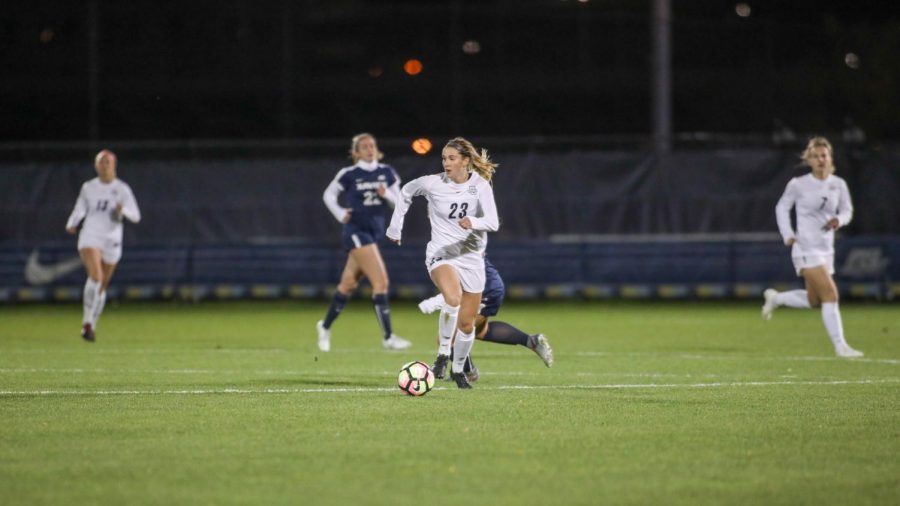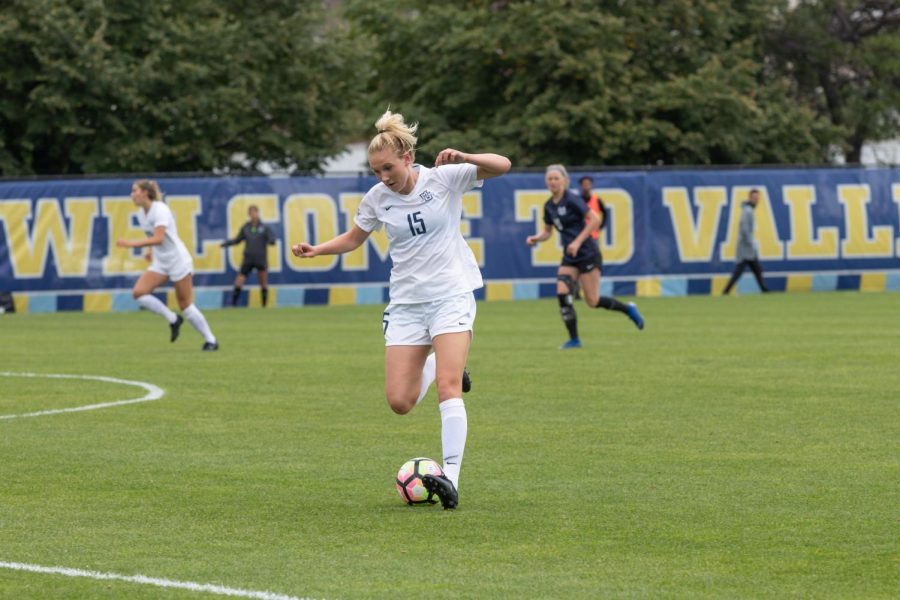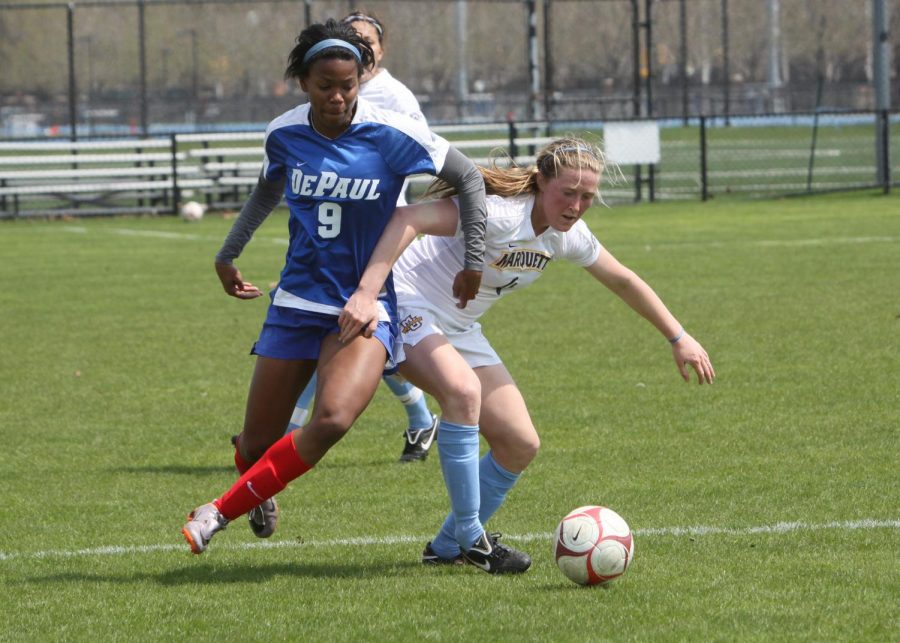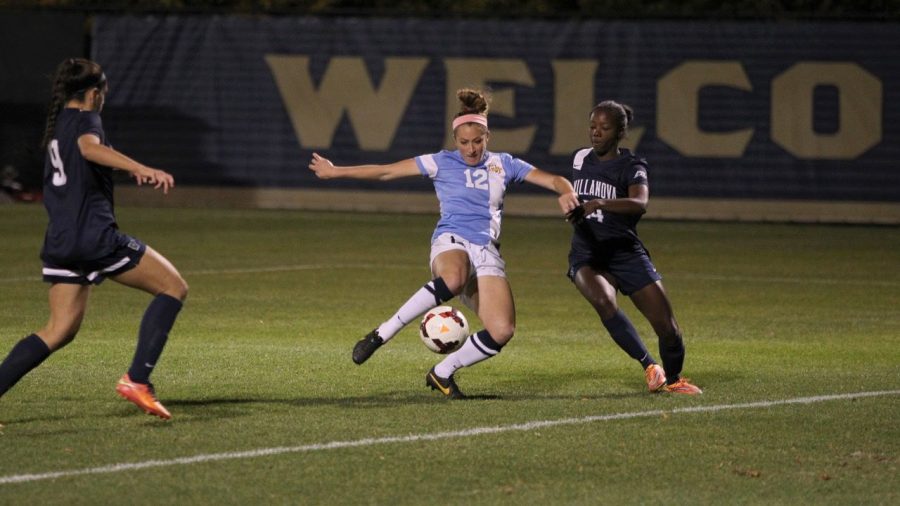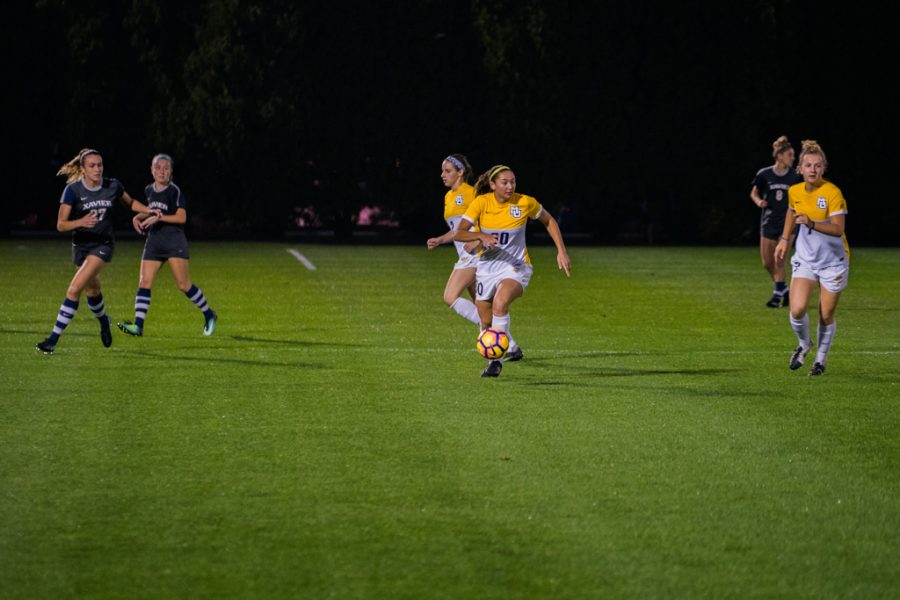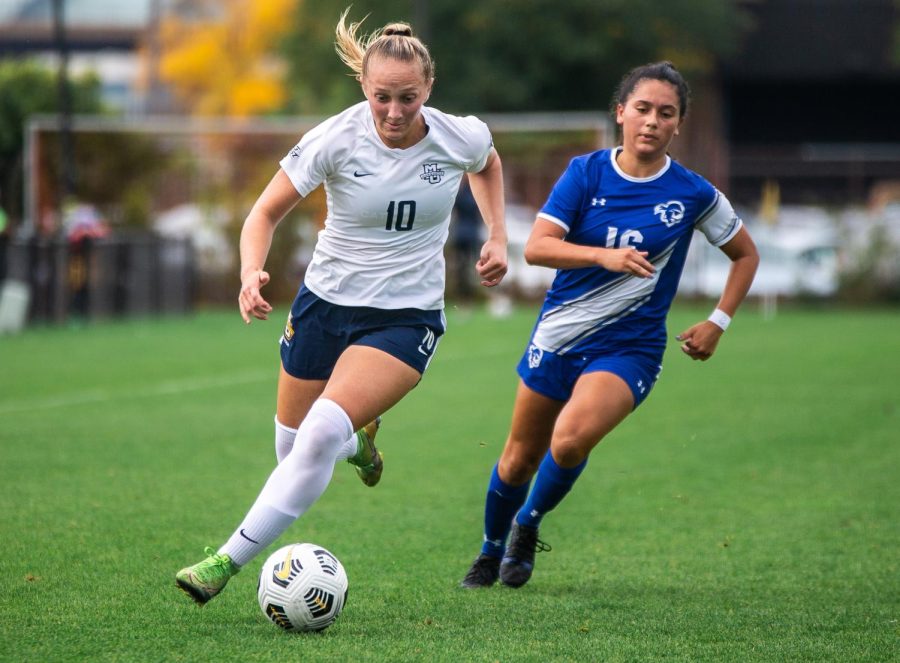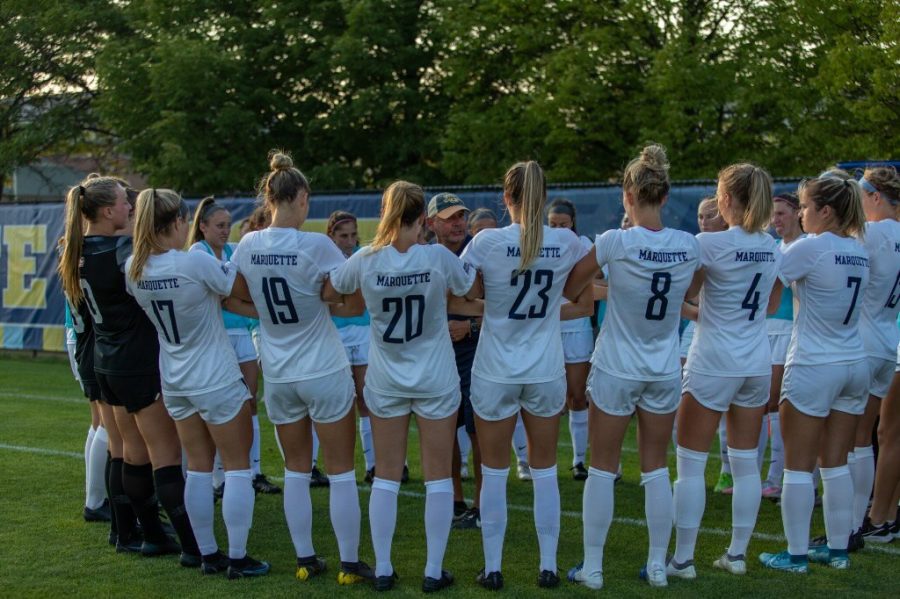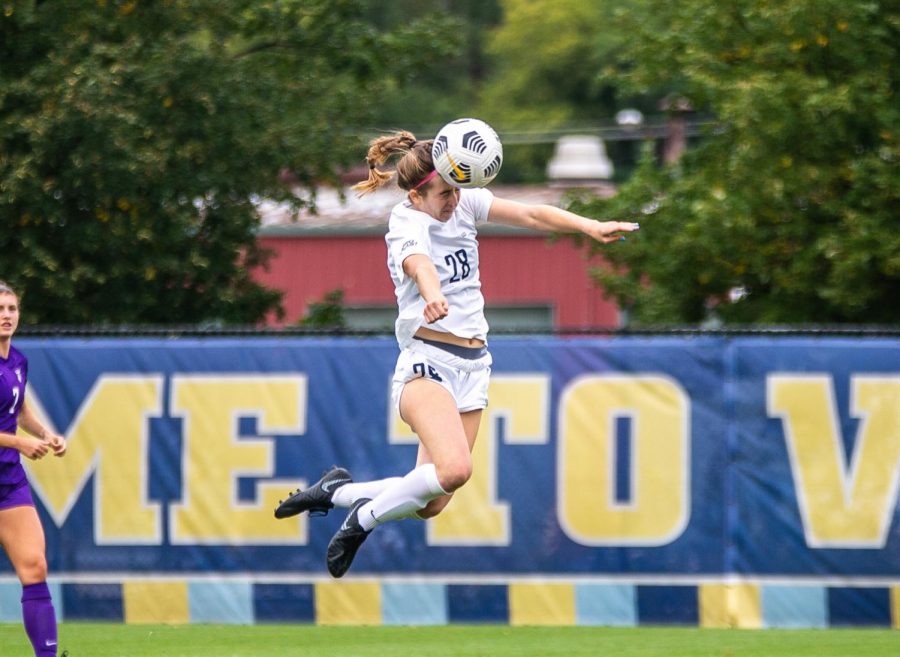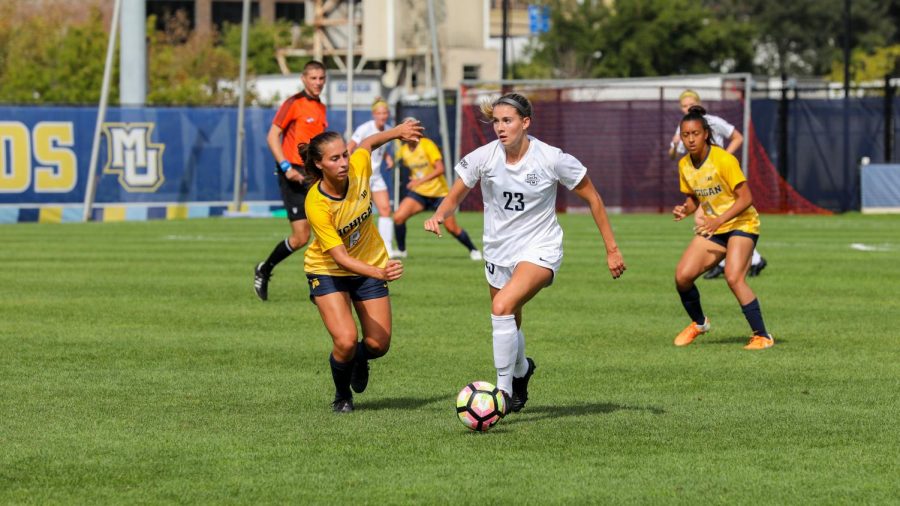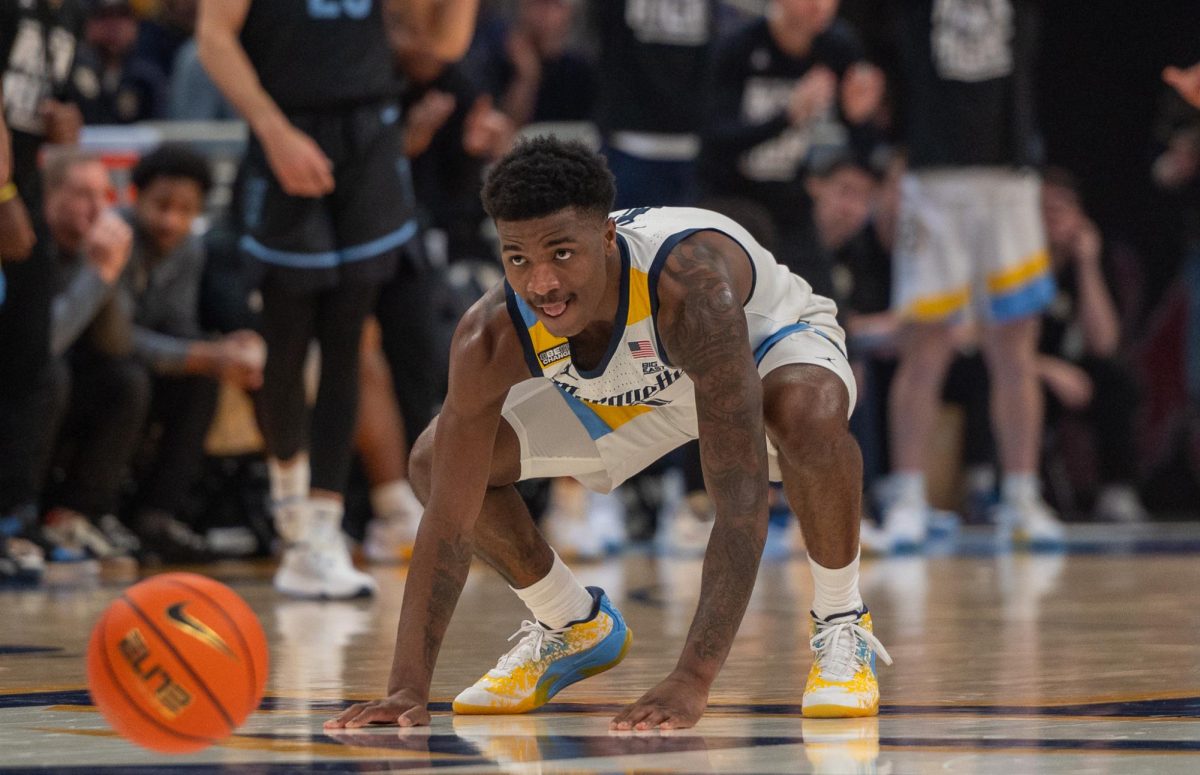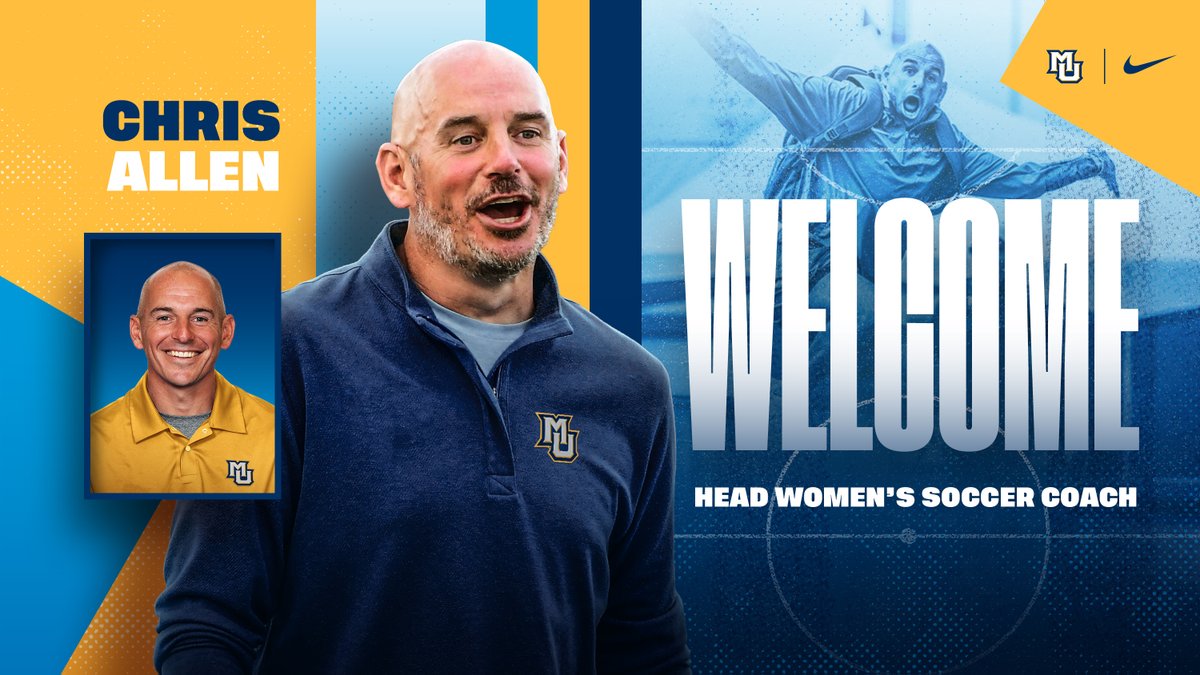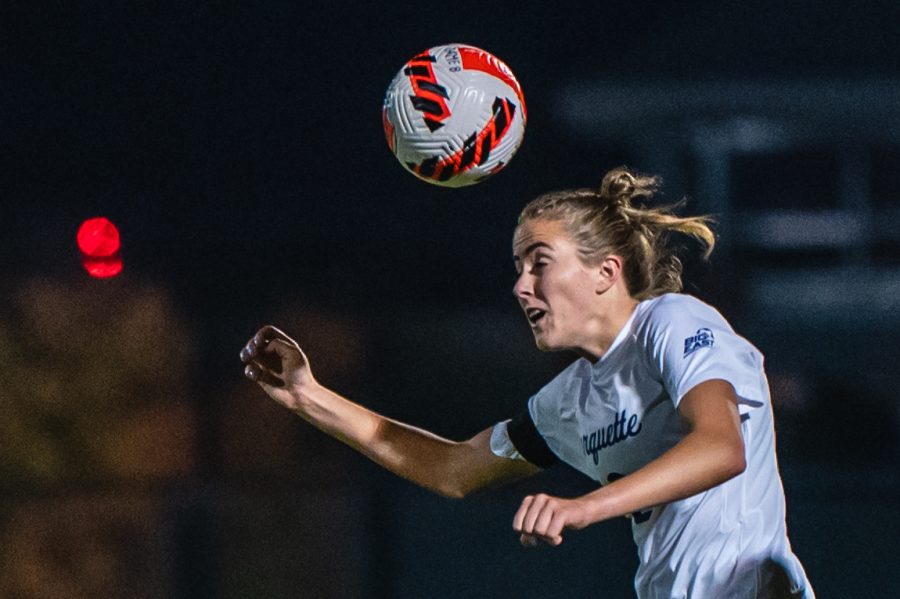Injuries are almost unavoidable when playing collegiate sports. Most often, college athletes will go through some sort of injury, whether that be a sprain, break or tear. For those athletes that have sustained an injury during their college years, the road back to health can be full of struggles and setbacks.
According to a five-year study from the Centers for Disease Control and Prevention, soccer has the second most injuries among women’s sports, with gymnastics being the first, but gymnastics has a much smaller number of athletes across the U.S. According to the data provided, women’s soccer has an estimated injury rate of 8.4% per 1,000 athlete-exposures in the NCAA whereas women’s gymnastics has a 10.4% rate of injury.
At Marquette, the university has recently added more injury prevention techniques, including the building of the Athletic and Human Performance Research Center. Despite this, injuries still occur.
Women’s soccer midfielder/forward and junior Rachel Johnson said her injury was from an ill-timed slide-tackle early in the season as a first-year student, which led to an ACL tear.
For forward Kylie Sprecher, her injury developed a little slower as she noticed pain in her foot during her first season. After playing through the pain in her sophomore year, Sprecher decided to go through surgery to deal with the injury.
“I started having pain in left foot the spring of my freshman season, after our first real scrimmage against the Red Stars that year. I started having some weird pain in my big toe and in the bottom of my foot. We didn’t really know what was going on, soon they decided to put me in a boot,” Sprecher said.
They would find out later that Sprecher’s sesamoid bone in her foot, a bone that helps the big toe move normally, needed to be removed. The surgery was completed the December following her sophomore year.
Northwestern Michigan University women’s soccer assistant coach Darian Powell, who is an alum of the Marquette women’s soccer program, went through five surgeries during her time with the Golden Eagles.
All three said that despite the injuries in college, they had not had a single sports-related injury barring some minor rolls and sprains from Sprecher and Johnson. Powell, who went through multiple injuries, said there was an odd coincidence related to when she was injured prior to college.
“I broke my arm in middle school or something but that’s the extent of any injury I had,” Powell said.
Both Johnson and Sprecher mentioned having ankle sprains, but neither were as serious as the injuries at Marquette. After deciding to go through with her surgery, Sprecher said she wanted to be back on the field.
“Any athlete at this level wants to play your sport all the time to the best of your ability. I was disappointed that I would be missing out (on) getting better and playing and training and doing all of that,” Sprecher said. “When it set in that this was how it was going to be, that it would only make me better in the long run.”
For rehabilitation, Johnson said the most difficult part of the process was the mental aspect.
“I never really knew the mental game was that huge of it until I suffered through a serious injury, but I think the mentality and gaining back your confidence was something that was the biggest struggle for me,” Johnson said.
Sprecher also said the rehabilitation process was grueling.
“There were many times where I was frustrated with myself because I’m such a perfectionist and I want to get things done on the first try,” Sprecher said. “So just learning how to curl my toes in the beginning, that first week or two, I was trying so hard to get them to slightly bend and they wouldn’t move. I think in times like that where you know you can do something and you’re trying your best and it’s still not happening, I really had to take a step back and say, ‘it’s OK, it’s going to come back.'”
Sprecher said after an injury, many athletes are cautious in order to not hurt themselves again. However, all three women said once they got back onto the field, everything just came back to them.
“Yeah, I thought I was going to have a heart attack. I was so excited and nervous,” Powell said. “When you’re coming back from injury, you’re always thinking, ‘I can’t get injured again,’ and you’re a little afraid, but once you get going, ‘oh, this is where I belong, this makes it all worth it.’ And for me, scoring those goals solidified that everything I went through was worth it.”
The goals Powell talked about marked the shortest elapsed time between goals in Marquette women’s soccer history. Although Johnson and Sprecher did not set any records in their first games back, the nervous and exciting energy was still very real for them.
“I was more excited than scared but obviously, just being back in a game setting and just being back on the field at the college level, I had only gotten a hint of it my freshman year so being able to do that sophomore year was awesome,” Johnson said.
Sprecher expressed similar thoughts about the first few minutes back, but had a moment after the game to appreciate the journey.
“The second you get onto the field and get your first touch, your first tackle, it’s like riding a bike,” Sprecher said. “You always remember how to do it, so I think after I got my first touch, I thought, ‘look, you know how to do this’ and I kind of forgot about it. Afterward it was a very exciting moment because I realized everything I had gone through in the past year got me back to where I was hoping to be again.”
Powell said that while her injuries and surgeries limited her potential as a player, she felt like she had to take a different path in her career.
“I felt like physically I was never going to be where I ideally wanted to be and so that’s when I knew I wanted to coach because playing wasn’t doing it for me anymore and physically, I felt like I couldn’t,” Powell said. “Now, I can have this impact on other girls and help them become the best soccer players they can be because I didn’t feel like I fully got there.”
Johnson said that for younger athletes, she would tell them to not be afraid to be vulnerable and ask others for help.
“Whether you’re on crutches and being able to ask for help for food or to sit and talk or you’re struggling with anything,” Johnson said. “No matter what it is, just not being afraid of being vulnerable because at the end of the day, the support system around you, here’s it been great and reaching out anyone around you to help you out is probably the biggest thing I would take away from it.”
This story was written by Bryan Geenen. He can be reached at [email protected].

